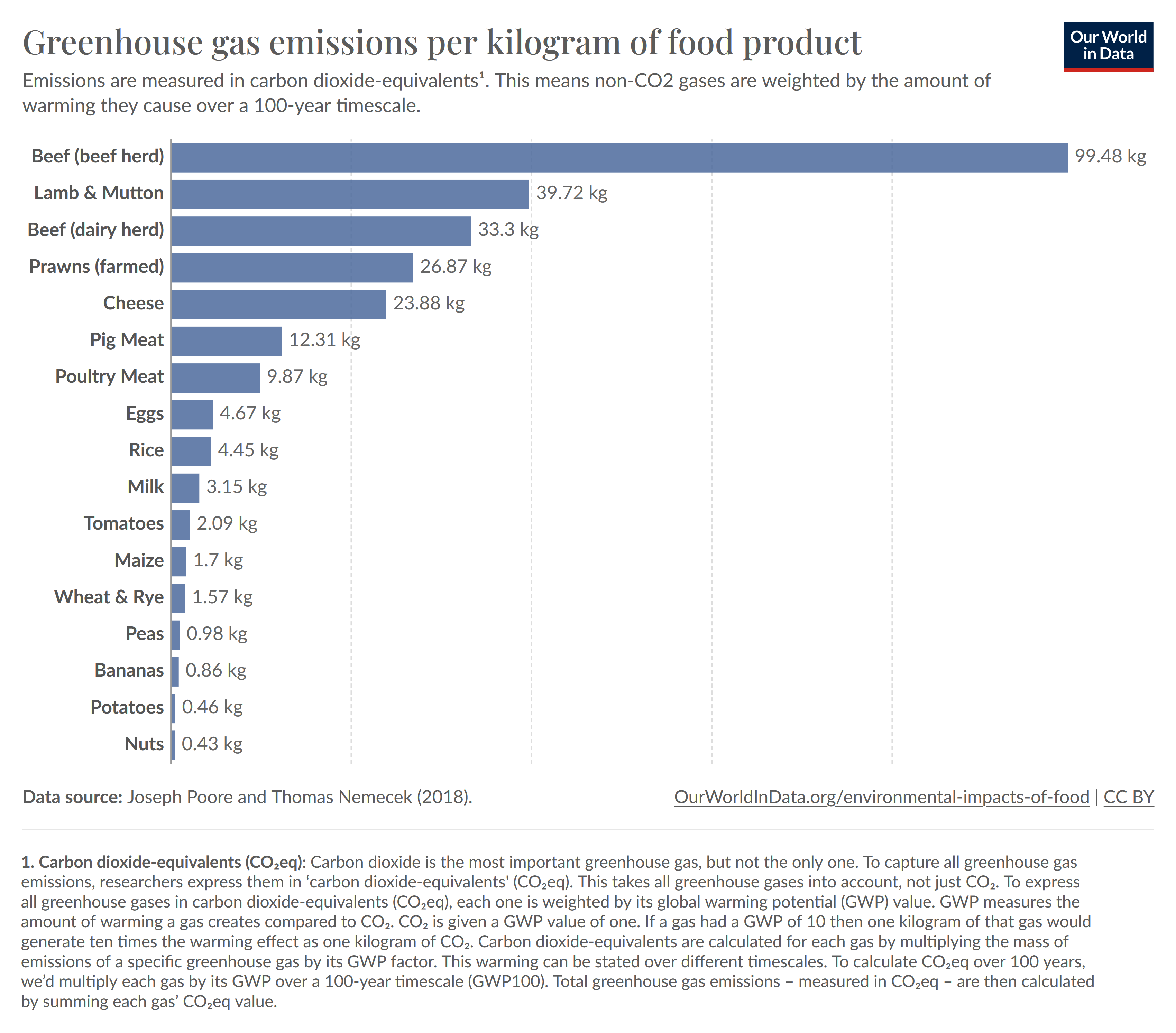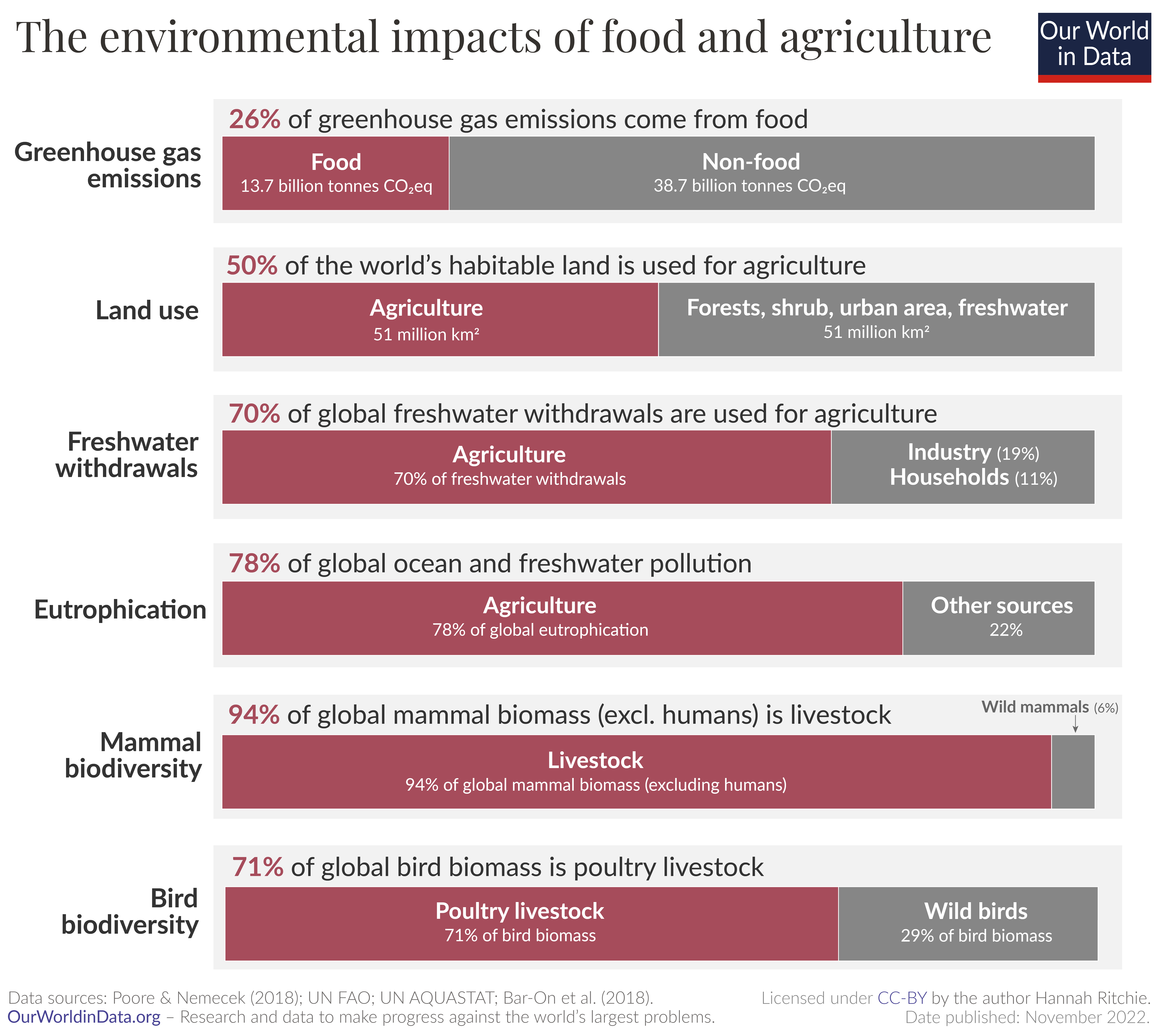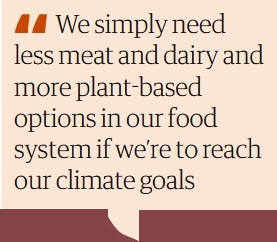Introduction
In a world facing growing concerns about climate change, resource depletion, and the need for sustainable food production, the choices we make regarding our diets play a crucial role in shaping the future of our planet. Food production and consumption have significant environmental consequences, and one of the most important decisions we can make to reduce our ecological footprint is choosing between plant-based and animal-based diets. In this blog, we will explore the impact of food choices on sustainability, comparing the environmental consequences of plant-based and animal-based diets.
Plant-Based Diets: A Greener Choice
Plant-based diets, often associated with veganism, are gaining popularity for their potential to reduce environmental impact and the reduction of animal harm. Here are some of the key reasons why plant-based diets are considered more sustainable:

- Lower Greenhouse Gas Emissions: The production of plant-based foods generally emits fewer greenhouse gases compared to animal-based foods. Livestock, particularly cattle, produce significant methane emissions during digestion and manure decomposition. These emissions contribute to global warming, making animal agriculture a major contributor to climate change.
- Reduced Land Use: Plant-based diets require less land for food production. Livestock farming necessitates vast areas of land for grazing and growing animal feed, resulting in deforestation and habitat destruction. By choosing plant-based options, we can reduce the demand for these extensive land resources.
- Water Conservation: Animal agriculture is a water-intensive industry. It takes thousands of gallons of water to produce a single pound of meat, while plant-based foods generally require less water. Switching to plant-based diets can significantly reduce water usage, helping to alleviate the global water crisis.
- Biodiversity Preservation: Large-scale monoculture farming, often associated with animal agriculture, can lead to the loss of biodiversity. Pesticides and herbicides used to support these practices can harm ecosystems. On the other hand, diversified plant-based diets can be less harmful to local wildlife and biodiversity.
- Reduced Pollution: The runoff from animal farming can lead to water pollution, impacting aquatic ecosystems and human health. By consuming plant-based foods, we can help reduce pollution and its adverse effects.
Animal-Based Diets: Environmental Concerns
While plant-based diets have clear sustainability benefits, animal-based diets come with a range of environmental concerns:

- Greenhouse Gas Emissions: Animal agriculture is responsible for a substantial portion of global greenhouse gas emissions. Cattle farming, in particular, is a significant contributor due to methane production. These emissions trap heat in the atmosphere and exacerbate climate change.
- Land Use: Livestock farming requires large areas of land for grazing and growing feed crops. This results in deforestation and habitat loss, further endangering ecosystems and contributing to species extinction.
- Water Consumption: The water footprint of animal-based diets is much higher than that of plant-based diets. The production of meat and dairy products consumes vast quantities of water, contributing to water scarcity in many regions.
- Pollution: Animal agriculture produces large amounts of manure, which can lead to water and soil pollution. Nutrient runoff from animal farms can contaminate nearby water sources and harm aquatic life.
- Antibiotic Use: The use of antibiotics in animal agriculture contributes to the emergence of antibiotic-resistant bacteria, posing a threat to human and animal health.
The Human Factor
It’s important to note that the impact of food choices on sustainability isn’t limited to the environment; it also affects human health and well-being. Plant-based diets have been associated with numerous health benefits, including reduced risk of chronic diseases like heart disease, diabetes, and certain types of cancer. On the other hand, excessive consumption of animal-based foods, particularly red and processed meats, has been linked to a higher risk of these health issues.
Furthermore, the production of animal-based foods often involves inhumane conditions and practices in factory farming, raising ethical concerns about animal welfare. Plant-based diets, which exclude animal products, align more closely with ethical principles of compassion and respect for all living beings.
Conclusion: Making Informed Food Choices for a Greener Tomorrow
The choices we make about our diets have far-reaching implications for the environment, human health, and animal welfare. While plant-based diets offer clear sustainability advantages in terms of lower greenhouse gas emissions, reduced land use, and more responsible resource consumption, the transition to a completely plant-based diet is still raising a lot of resistance in some people. However, it can be quite feasible for everyone, if you have the right reasons in mind.
For those who find a complete shift to plant-based eating still a step too far away, you could consider Freeganism. This lifestyle involves consuming discarded or waste foods, in which way you don’t support the animal industry financially. It offers a pragmatic and sustainable way to reduce one’s impact on the environment and animal exploitation.
Ultimately, our collective effort to make more sustainable food choices will play a crucial role in addressing the pressing environmental challenges of our time.
~ Written by Carlijn





